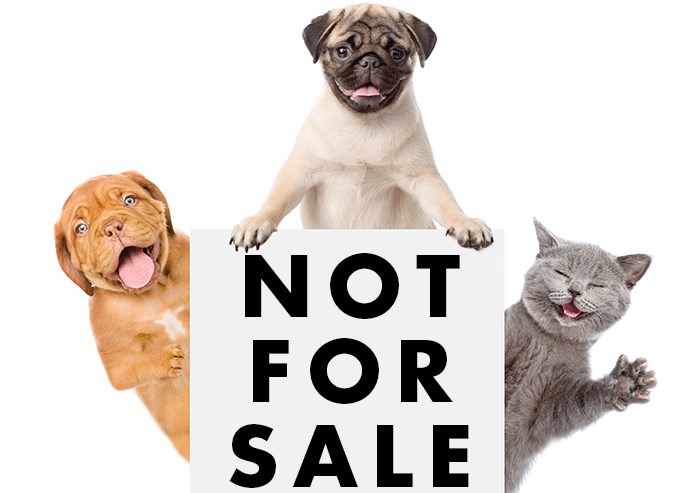 Shutterstock
Shutterstock
On Tuesday, city council unanimously voted to end sales of kittens, puppies and rabbits at Vancouver pet shops.
The Dec. 12 vote was the final result of a June directive by city council to amend two bylaws regarding the sourcing and retail sale of the animals as a way to cut down on “disreputable breeders,” impulse pet buying and animal overpopulation.
The new city regulation states that Vancouverites will still be able to adopt animals from some pet stores that have partnered with licensed animal shelters such as the BC SPCA.
Kathy Powelson, executive director of the Paws for Hope Animal Foundation, said although she was thrilled about city’s adoption of the sales ban, she would like to see the ban extended to online sellers and the sale of smaller animals.
“There isn’t the same level of consciousness or awareness around the suffering of smaller animals such as guinea pigs and hamsters,” said Powelson, who lobbied the city last February about crafting the bylaw amendments. “Because this is such a big issue, we start with low-hanging fruit. With cats, dogs and rabbits, people tend to get more worked up.”
She now wants to focus on educating people about online sales forums where, she said, a lot of unlicensed breeders operate.
Maria Soroski, co-founder of the Vancouver Orphaned Kitten Rescue Association, said that Metro Vancouver municipalities already have a large population of rescue cats and there is no need for people to buy them from pet stores. Soroski said her association takes in roughly 1,400 cats a year, mostly from Surrey, and spays and neuters them. Some are feral due to lack of socialization with humans and are released back into the wild after the medical procedures, while others, which have been socialized, are put up for adoption.
“Having these pet stores sell kittens that are bred on purpose, for profit, is not helping the situation,” Soroski said. “If people are looking for small dogs, we don’t need pet stores getting these from puppy mills. We’ve got enough. We’ve got lots of rescues.”
Olga Betts, president of Vancouver Rabbit Rescue and Advocacy, said that people need to understand that owning a rabbit is a 10-year commitment and people tend to fall out of love with them once the rabbits reach puberty and start marking their territory with feces and urine.
Betts said stores never sell adult rabbits and store operators are “notorious” for not knowing whether they are selling males or females, resulting in unwanted breeding and yet more responsibility when someone purchases a pair. “One of the big problems with people abandoning rabbits is they go to a pet store and they pick a little baby bunny because it is so cute, and it is an impulse buy,” Betts said. “Animals are not shoes and hats. They should not be for sale in a store for anyone who puts down money.”
Lorie Chortyk, general manager of community relations for the BC SPCA, said the ban is a good first step, but education of the greater populace about the circumstances at puppy mills is also necessary. Chortyk said the society gets a lot of complaints from people who buy their animals from pet stores. The ban, she said, would help to further rout out commercial breeders who fail to ensure that dogs meet provincial health and breeding standards.
“It’s a pretty open system. It’s not a secret,” Chortyk said about the unregulated breeding and sourcing of dogs. “It’s not illegal for them to do this, but often how it happens is that pet stores say that they only deal with home breeders, but there is no real system for ensuring those animals are properly cared for.”
Chortyk added: “What has tended to happen in the past with some pet stores is they’re very good at having the kind of answers that people want to hear, but there is nothing to back that up. I think people need to ask a lot of questions whenever they are getting a pet.”


